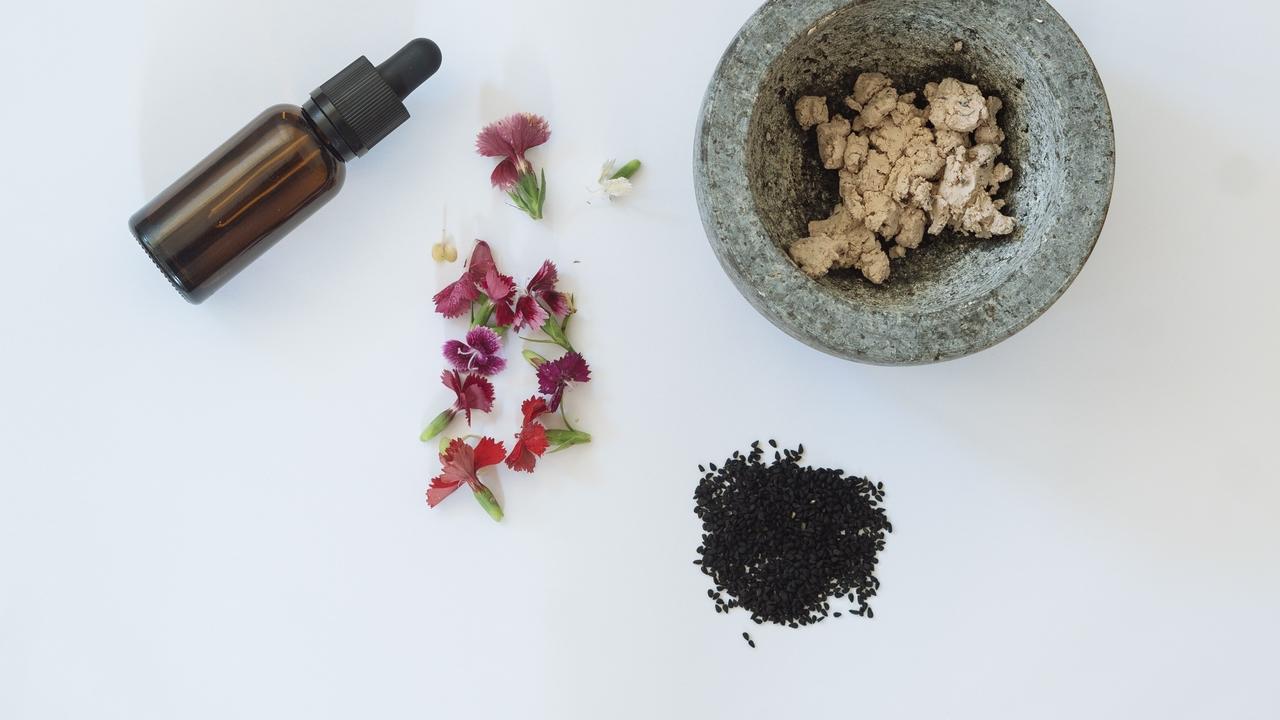The Importance of Clean Beauty Products

Have you ever stopped to consider the number of cosmetics products you use on a regular basis? The amount may surprise you. Cosmetics include all personal care products, such as soaps, shampoos, lotions, makeup, deodorants, hair styling products, sunscreen, shaving cream, toothpaste, perfumes, etc. The Environmental Working Group estimates most people use at least 6-12 cosmetic products each day.
Many people purchase these products to achieve a desired result, like softer hair or fewer wrinkles. But, your beauty efforts may be undermined by unhealthy ingredients your products contain. Most commercial cosmetics available today contain controversial ingredients shown to negatively affect your health. Many of these ingredients are thought to be toxic to humans and may contribute to poor health and disease. Some of the most common toxic ingredients include:
- Triclosan
- Parabens
- Phthalates
- Artificial Colors
Fragrance is also commonly listed on personal care products. It’s more of a blanket term for any scent added to a product, since manufacturers are not required to list the exact ingredients found in fragrance. It’s estimated that a single fragrance can contain anywhere from 50 to 300 different chemicals.
The most common adverse reactions to products containing these chemicals includes skin irritation, allergic reactions, and asthma. Nothing pretty about those side effects! Many studies suspect long-term exposure to these ingredients can cause even greater harm.
Some common chemical ingredients found in personal care and household products are known carcinogens, meaning exposure to them may increase the risk of developing certain types of cancer. Many of these ingredients are also known endocrine disruptors, meaning they can interfere with the production and function of hormones in your body. Hormone disruption can result in thyroid disorders and disorders of both male and female reproductive systems, including infertility and birth defects.
The more products you use, the greater your exposure to these toxic chemicals. According to the Environmental Working Group, women are exposed to 168 different chemical ingredients each day. This is more than men, who are estimated to come into contact with an average of 85 different chemical ingredients each day.
What makes these numbers so concerning is that researchers believe the harmful effects of individual chemicals may increase when ingredients are combined – i.e. using multiple products with different ingredients, such as body wash, shampoo, conditioner, shaving cream, lotion, face products, deodorant, perfume, and makeup during and after a daily shower.
The chemicals used in manufacturing these products are unregulated. That means it’s up to you to read ingredient lists (just like you would for food products) and steer clear of those linked to adverse health effects.
Replacing the products you use most often is a good place to start. When it comes to shopping for healthier products, look for products listed free of parabens, phthalates, and sulfates and look for natural ingredients you know and recognize. Look for products fragranced with essential oils instead of chemically manufactured fragrances, like this body butter and facial moisturizer
Using an app or consulting the Environmental Working Group’s product database, called SkinDeep, can also help you identify healthier brands and products.
It’s about every touch-point. From foods, your thoughts, movement, and even to the chemicals you’re putting on your body. At The Cycle Solution, we are passionate about providing you the information and knowledge so you don’t have to worry about these harsh chemicals in these sort of products. I would only suggest using natural, organic, gluten free ingredients that are identifiable and that also happen to be great for your skin!
References:
The Endocrine Society's Second Scientific Statement on Endocrine-Disrupting Chemicals
The Health Effects of Aluminum Exposure
Endocrine Disruptors and Asthma-Associated Chemicals in Consumer Products
I want to hear from you!
- Was this post useful? Have you been dealing with any menstrual and/or reproductive issues? Tell me below what you’re dealing with and how you are fixing it. [email protected]
- Please share this post on social media or with any one who might need this information. Join me on Instagram for all the latest info on periods, hormones, and women's health.
- Want to be the first to know when I release a new blog post? Sign up below!
Medical Disclaimer
Information in this post and on this web site is provided for informational purposes only. The information is a result of practice experience and research by the author. This information is not intended as a substitute for the advice provided by your physician or other healthcare professional or any information contained on or in any product label or packaging. Do not use the information on this web site for diagnosing or treating a health problem or disease, or prescribing medication or other treatment. Information and statements regarding dietary supplements have not been evaluated by the Food and Drug Administration and are not intended to diagnose, treat, cure, or prevent any disease. Always speak with your physician or other healthcare professional before taking any medication or nutritional, herbal or homeopathic supplement, or using any treatment for a health problem.
